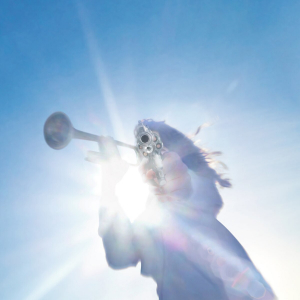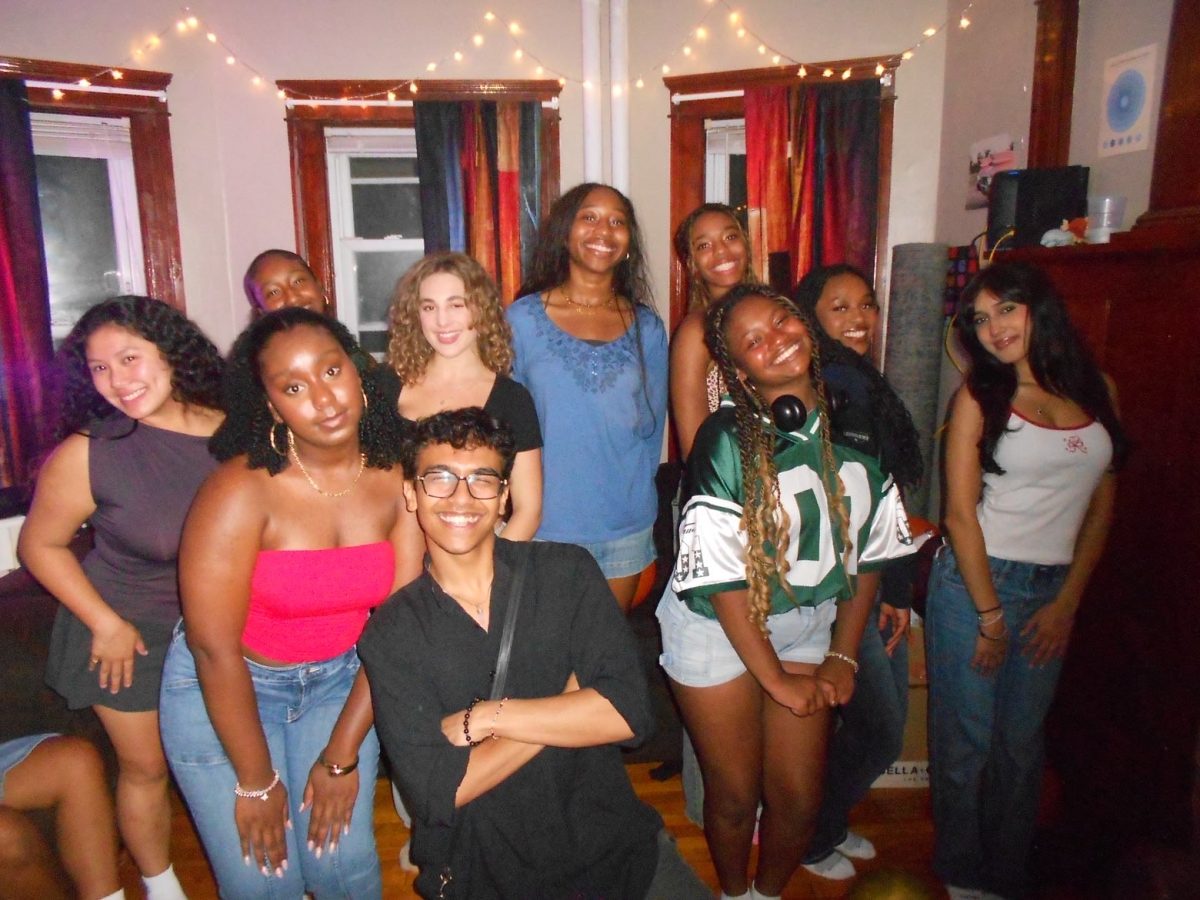Mitski released her 7th album, “The Land Is Inhospitable and So Are We”, on September 15th. She proclaims this as her “most American album”, and listeners will immediately agree upon hearing the folk sound and lyrics filled with nostalgia and loss. The album reflects themes of religion, hope and the American West. The album is by no means pure melancholy as some may insist – it is the opposite. It harbors a will to keep going and demonstrates a light in the darkness.
The first track of the album, and one of my favorites, is “Bug Like an Angel.” The first lines remind me why Mitski is and will always be one of my favorite artists: her multi-layered lyricism and symbolism. “There’s a bug like an angel stuck to the bottom/of my glass, with a little bit left/as I got older, I learned I’m a drinker/Sometimes, a drink feels like family.” She says she learned she is a drinker, and when analyzed alongside the lyric that “a drink feels like family” it is implied that the speaker is aware of a disposition among her family members to alcoholism and that she is now trapped in the cycle. The bug at the bottom of the glass “with a little bit left” is a double or even triple meaning, as the bug has the smallest amount of life left in it as it is crushed, the glass physically has a little bit of liquor left in it, and the speaker has the smallest bit of willpower left. In Mitski’s words, the bug is “like an angel,” because after knocking back the final drops of liquor, the speaker looks through the glass and sees this crushed insect shining through. The sight causes a pause in their stupor and a reminder of what lies outside their tunneled vision: a reminder that there is life beyond the pain within. The song’s final lines are “When I’m bent over wishing it was over/Making all variety of vows I’ll never keep/I try to remember the wrath of the devil/Was also given him by God.” This can be interpreted as a numb relationship she is in, but more likely reflects someone vomiting after binge drinking and vowing they will never drink again only to fall back into the cycle. The final line, regardless of how the previous is interpreted, is the speaker saying that the bad things in life are often facets of the great things in life and that things are never black and white – once again a reminder to keep going. Mitski in recent years has been given the reputation of making “sad girl music” in the words of social media, and the fact that one of the main themes of “The Land Is Inhospitable and So Are We” is gray area specifically in misery or joy, and resilience in the face of despair, feels like Mitski is snapping back at those who claim her music romanticizes the act of suffering.
The second track highlights how this is Mitski’s “most American album”. When American settlers moved further west to occupy more land, Native Americans were forcibly displaced from their homes, the buffalo were hunted to near extinction and the Transcontinental Railroad was built to link the East and West. “Buffalo Replaced,” exemplifies the theme of a radically altered landscape and the past haunting the present. One lyric from the song is “Freight train stampedin’ through my backyard/It’ll run across the plains like the new buffalo replaced.” The freight train replacing the buffalo is the perfect analogy for the way America was radically altered during the 19th century and beyond, and the words “new buffalo replaced” allude to American consumerism, as this “new buffalo” will be replaced over and over with the newest model. This analogy also applies to the speaker growing up and watching her life change over time. The first lines of the song are “Mosquitos can enjoy me, I can’t go inside/I’m suckin’ up as much of the full moon, so bright/Fireflies zoomin’ through the yard like highway cars/Someone out here burning something, kids feeling alive,” reflecting a oneness with nature and a childlike nostalgia of a summer bonfire. The fireflies being compared to highway cars is another brilliant comparison of the natural world with the man-made landscape. One of the album’s main themes, hope, is personified with the lines “I have a hope and though she’s blind with no name/She shits where she’s supposed to, feeds herself when I’m away/Sometimes I think it would be easier without her/But I know nothing can hurt me when I see her sleeping face”. I love this song and this line especially, as it represents that hope can sometimes seem pointless but will always be there.
“I Don’t Like My Mind” and “When Memories Snow” are narrated by a speaker haunted by the past. The lines “When memories snow/And cover up the driveway/I shovel all those memories/Clear the path to drive to the store” have brilliant imagery representing the mundanity of pulling yourself together when your mind will not quiet down but you still need to complete daily tasks. It also emphasizes that this is a frequent event as the speaker merely shovels them away like a bothersome chore. In “I Don’t Like My Mind” the lines “And then I get sick and throw up and there’s another memory that gets stuck/inside the walls of my skull waiting for its turn to talk/And it may be a few years, but you can bet it’s there, waiting still/for me to be left alone in a room full of things that I’ve done” echo once again the feeling of needing a constant distraction from memories that just will not leave. The way Mitski can personify memory and emotion in her work has always captivated me, especially in songs where the speaker seems to have an established routine of coping and avoidance in a way comparable to daily chores.
Overall, “The Land Is Inhospitable and So Are We” is a fantastic album with rich imagery and symbolism, a fantastic sound with moody guitar and ethereal swells and, of course, Mitski’s gorgeous vocals. I would highly recommend checking out this album as well as Mitski’s other work.


